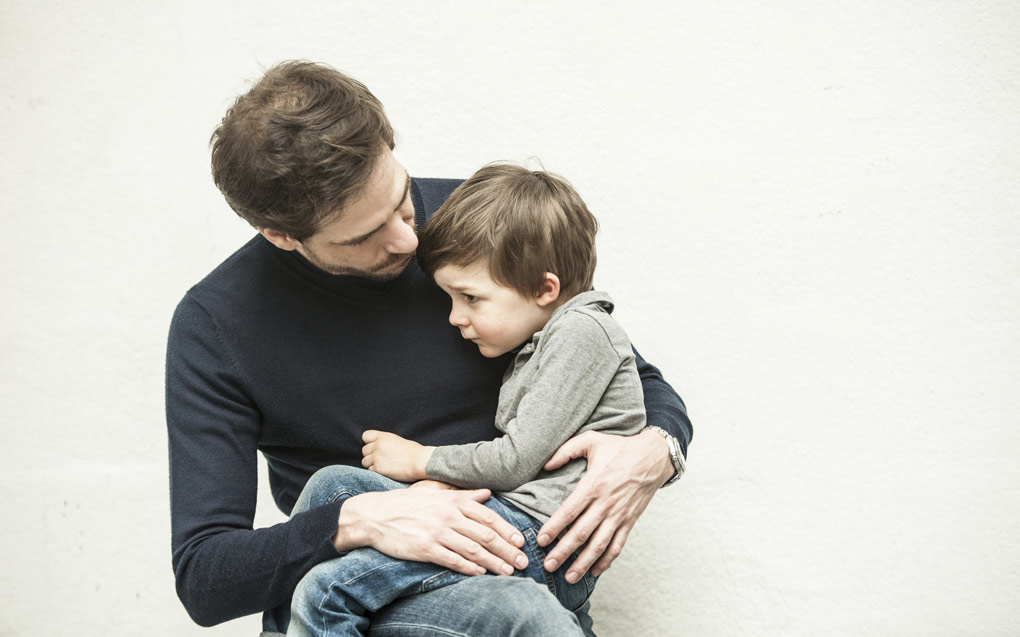How do we answer the children’s question about death?

Family group: One of the most challenging concepts that many parents are concerned about is asking children questions about concepts such as death and what answers parents should give to children in this situation that are firstly digestible for the child, secondly correct and thirdly anxious for the children. Do not overdo it. What is more, sometimes parents are reluctant to answer this question, but children whose curiosity knows no bounds ask others and hear misunderstandings that affect their mental health.
Therefore, considering that death is one of the painful realities of life, which is a more difficult process to explain to children, in this report we want to teach you how to explain this issue to children with the least anxiety.
1. Prepare yourself for the children’s questions
Questions like “Mom, Dad, what does death mean”, “Where is heaven”, “Who is God” and similar concepts start at the age of four or five in children and the older they get, the better the quality. So prepare yourself for these questions, especially if someone around you has gone to the mercy of God, these questions are strengthened by seeing the children.
Each parent answers these questions in accordance with his or her personal beliefs, religion, and family values, so if you have doubts or ambiguities in such cases, or do not have a clear and definite answer for yourself, be sure to read and think until you have this question. If you encounter it, have an answer for it and do not hesitate.
2- Before 2 years old
Children do not realize the meaning of death before the age of 2, but they realize that something has happened and something has changed, or if this happens in your own home, they realize that the space of their home or living environment is tense, resulting in a lot of anxiety. Experience but can not express it.
Therefore, during this period, special attention should be paid to the children’s feelings, and if the child asks a question around the age of 2, just explain that:
“The deceased has passed away and will not return.”
3. Three to five years old
The minds of children in this period are such that before hearing the explanation, they think that death is a reversible event and remains like a dream.
It is wrong to say, “Death is like a dream” or “Grandma has gone far away” or “Journey”, but sometimes you have to tell the child that “Death means that another person’s body does not work.”
At this age, be careful not to remind children that nothing bad is to blame. For example, if they have seen the death of a loved one up close or have lost their parent, the other party should keep telling the child.

4- Six to 9 years old
During this period, children will understand more logical and better explanations, and it is generally recommended that you use objective examples and physical explanations for them. For example, “explaining the function of the body and internal organs” to normalize this issue for them and reduce death anxiety in their minds.
5- Ten years and up
Children at this age are introduced to the concept of death in different ways, but gradually they are also ready to accept the value organization of parents, that is, they can be introduced to the concepts of unique personal beliefs such as heaven, hell, God, etc. talked. Some people start these trainings at a younger age, which is not bad, but it is better not to know about things like hell and death that make children anxious.
Finally, there are some things to keep in mind:
1- Explain this to the child before experiencing grief or facing the concept of death, and the time depends on your child’s readiness.
2. At any age, if you have experienced personal grief, prioritize your children’s feelings and, if possible, use a therapist to resolve the issue, as childhood grief is a complex and traumatic event.
3- Be honest and do not confront the child with conflict.
For example, avoid unrealistic expressions that keep the child waiting. Like “Grandpa has gone on a long journey”!
Either phrases with the meaning of abandonment such as “our grandfather left us and gone” or pessimistic expressions such as “God took it from us” and contradictions such as “mom and dad do not die”.
Another point is that you can use animation, story books and games and dolls or paintings to explain the concept of death, but consider the age of the child.
End of message /
You can edit this post
Suggest this for the front page
.

